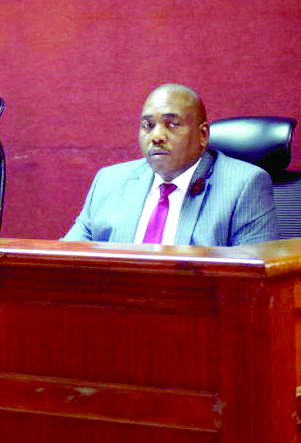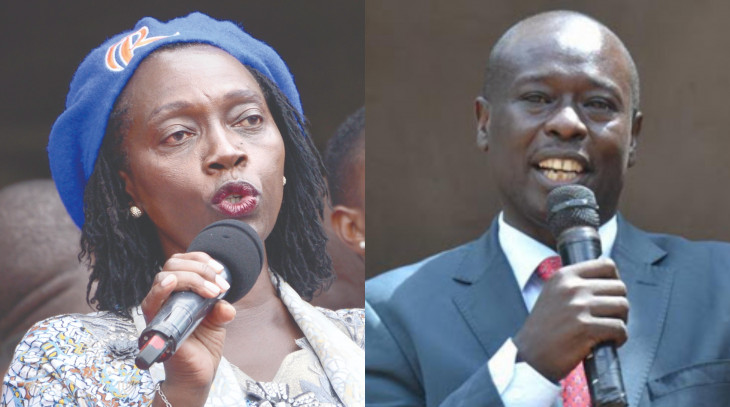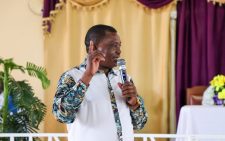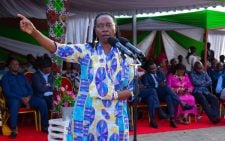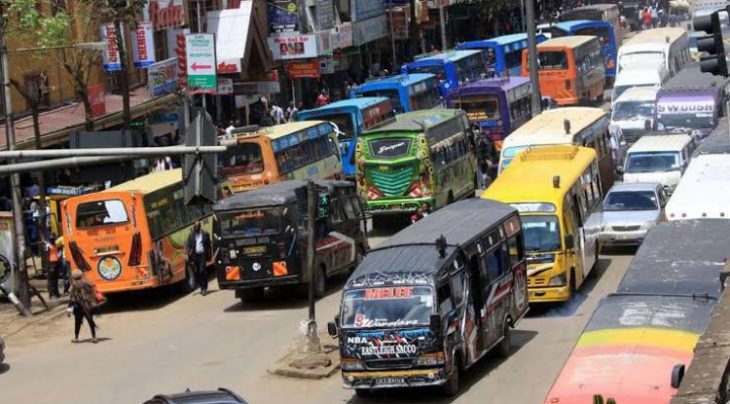Why picking running mate is a tall order
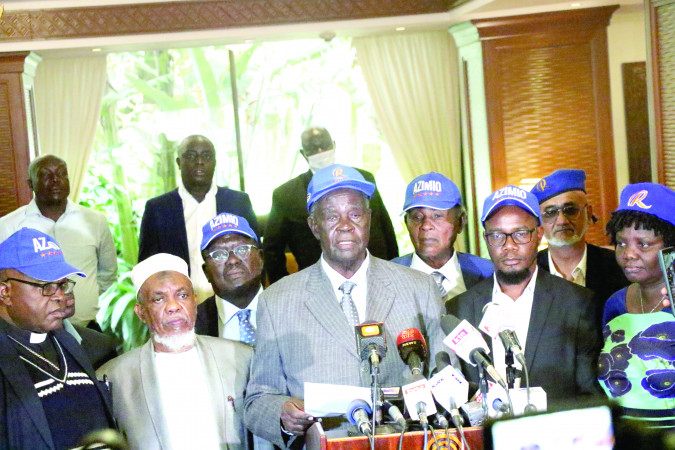
Former US President Barack Obama has been consistent that his choice of Joe Biden as running in the 2008 White House race was “the single best decision I have made.”
Biden, a veteran senator and foreign policy wonk, not only helped attract a significant white demographic to the ticket but also calmed anxieties around Obama’s political experience and race in America power politics.
The Obama-Biden ticket delivered a decisive victory. The converse was true for his then-rival Senator John McCain whose choice of Alaska governor Sarah Palin proved catastrophic.
As Deputy President William Ruto and Azimio leader Raila Odinga face Monday’s deadline to name their presidential running mates, the debate has intensified on the decision that could have far-reaching consequences on their State House chances.
The Azimio panel chaired by former Cabinet minister Noah Wekesa yesterday released three names selected for Raila as possible running mates while Ruto has indicated the decision gives him no migraine.
In a country where political mobilisation continues to revolve around tribal-bloc numbers, the running mate position is particularly significant in the Ruto-Raila contests.
This is because it is widely expected to either tilt the scales in their favour or hurt their chances of succeeding President Uhuru Kenyatta. The gravity of the decision is seen in the delay in naming the nominee with either candidate waiting for the other to go first.
It will be a delicate balancing act for the candidates fighting to reward old loyalties, accommodate new allies, and solidify their bases even as they seduce new blocs, especially the coveted Mt Kenya region.
Besides numbers, the candidates will be wriggling to whet the appetites of competing political interests sealed in their various coalition covenants to avoid what might turn out to be an injurious fallout late into the campaign.
None other than Obama has summed up the delicate nurture of the decision-making that goes into choosing a running mate.
“Choosing a vice-president is the first important decision a president makes. When you’re in the Oval Office, weighing the toughest issues, and the choice you make will affect the lives and livelihoods of the entire country — you need someone with you who’s got the judgment and the character to make the right call,” Obama said in a statement.
Makau Mutua, the spokesman of the Raila campaign, said the choice of a running mate will be critical for victory but will not be the only factor.
Mutua further holds that the DP choice will have to be an individual, who will help the candidate win and steer the implementation of a shared vision in a manner that will avoid the kind of near dysfunctionality that has characterised the relationship between the President Uhuru and Ruto for the past four years.
Important criterion
“Numbers will be an important criterion in an election. A running mate should not necessarily determine the outcome but they are important when you are considering the unprecedented circumstances of our election,” Makau told People Daily.
“A running mate can make a candidate lose an election. The choice of running mate says something about your judgment and it can be detrimental. The choice of Sarah Palin in the 2008 US presidential election cost John McCain the presidency, Obama, being a black man, had to choose Biden to accommodate the white demographic and balance out the ticket. That is how he won,” says the US-based law scholar. Yesterday, Wekesa said his panel had submitted three candidates including the criteria and modalities that were used by the members to evaluate the applicants.
The panel pegged their interviews on constitutional qualification, understanding of government, personality of the candidates, political acumen, compatibility and loyalty, strategic significance and the fight against corruption.
“Emphasis was laid on electability, capacity of vote mobilisation, transformative leadership, dependability, political tolerance and technical expertise in political campaigns. The panel has recommended three names that have been submitted in order of priority,” Wekesa said.
Those said to have made it to the shortlist include former Vice-President Kalonzo Musyoka, Narc Kenya leader Martha Karua and Agriculture Cabinet minister Peter Munya.
Those who have been linked to the position in Ruto’s camp include Tharaka Nithi Senator Kithure Kindiki, Amani National Congress chief Musalia Mudavadi and Mathira MP Rigathi Gachagua and his Kandara counterpart Alice Wahome.
A copy of the Kenya Kwanza Coalition agreement seen by the People Daily, however, revealed that the position of a running mate had been reserved for Ruto’s United Democratic Alliance, effectively locking out Mudavadi.
Prof Kaburu Kinoti, a data strategist and secretary general of the party of Peace and Democracy, thinks the Mt Kenya factor, numbers and coalition agreements will determine the make or break choice.
Compelling need
“There is a compelling need to seriously consider Mt Kenya region. It is a swing-vote region considering the huge number of votes in the area,” argues Kaburu.
The only reason it might not feature prominently is if the two do not pick a running mate from the area, which could divert attention from the region.
For Ruto, he has built his campaign on the Rift Valley-Mt Kenya axis. The attempt was for him to inherit Uhuru’s voting base and he has substantially penetrated the region although the area might still shift when proper campaigns begin.
Region is also looking to have someone who will safeguard its interests in government and beyond. Then there is the question of pre-election power deals.
“There is an agreement in Azimio that ODM produces the presidential candidate and Jubilee produces running mate. This does not necessarily have to be the case but the President, who is the coalition’s chairman, might consider picking someone within the alliance rather than from his own party. These might give people like Karua, Kalonzo or even Munya a chance,” said Prof Kinoti.
